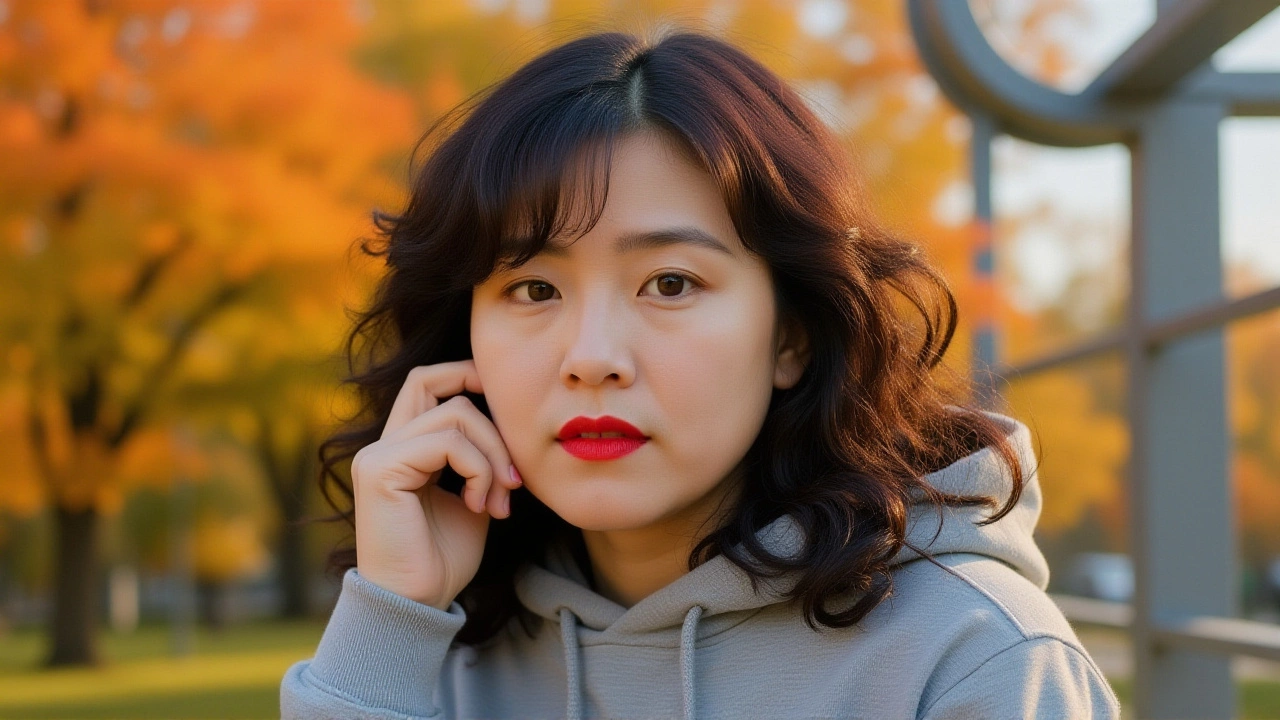When Baek Se-hee, author passed away at 35, the literary world felt a sudden, aching void – not just because she left unfinished chapters, but because her raw confession about living with depression had become a lifeline for thousands.
The update appeared on her Wikipedia page on Saturday, October 18, 2025, at 11:25 AM UTC. Although the entry omitted details about where or how she died, the confirmation alone sent ripples through South Korea’s reading community and mental‑health circles alike.
Born in 1990 in Goyang, a modest city in Gyeonggi Province, Baek turned personal anguish into a bestseller that sparked a national conversation about suicide, stigma, and the simple pleasure of street‑food comfort.
Early Life, Family Trauma, and the Road to Writing
Baek grew up as one of three sisters in a home shadowed by an abusive father. Those early scars, she later admitted, seeded the persistent depressive disorder that would dominate her adult life.
She earned a degree in creative writing from Dongguk University in Seoul. The university’s rigorous curriculum honed her narrative voice, but it was a five‑year stint as a social‑media director at an unnamed publishing house that gave her a backstage pass to the industry’s mechanics.
During those years, the pressure and isolation deepened her dysthymia. Baek sought psychiatric help and stayed in treatment for exactly ten years – a timeline she chronicled on a personal blog that, oddly enough, began as a private outlet.
From Blog Posts to a Bestseller Phenomenon
One comment on her blog read, “like a light was shining into the darkness of my life.” Baek replied, “All I’d done was be honest in public, but here was someone comforted by that.” That exchange ignited the idea for a memoir.
In 2018 she self‑published I Want to Die but I Want to Eat Tteokbokki. The title, a stark juxtaposition of suicidal thoughts and a love for the spicy rice‑cake snack, resonated instantly. Within months, Munhakdongne, a leading Seoul‑based publisher founded in 1976, snapped up the rights.
The sequel, I Want to Die but I Still Want to Eat Tteokbokki, followed in 2019. Both books were later translated into fifteen languages, making Baek a rare Korean author whose work crossed linguistic borders.
Commercial Success and Global Reach
- Over 1,000,000 copies sold in South Korea alone.
- Translations released in Japan, China, France, Germany, Spain, Portugal, Brazil, the United States, Canada, and more.
- English edition launched by Bloomsbury Publishing USA on March 1 2022.
- Series appeared on bestseller lists in both Korea and the U.K., staying in the top ten for twelve consecutive weeks.
Industry analysts compare Baek’s sales trajectory to that of Han Kang’s The Vegetarian, noting that both authors turned personal trauma into literary gold that appealed to mainstream readers.
Reactions: Publishers, Readers, and Mental‑Health Experts
Munhakdongne released a brief statement saying, “Baek’s voice changed how South Koreans discuss mental health.” Bloomsbury, while noting they had no comment on the cause of death, emphasized that the English editions remain in print and continue to be stocked in major retailers.
Lee Min‑soo, a professor of psychiatry at Seoul National University Hospital, told our desk, “When Baek wrote about craving tteokbokki while battling dread, she gave clinicians a tangible metaphor to use with patients.”
On social media, hashtags like #TteokbokkiTherapy trended for days after the news, with readers sharing how the books helped them survive dark periods.

Legacy: Shifting the National Conversation on Depression
The memoir’s impact is measurable. A 2024 survey by the Korean Ministry of Health found that 27 % of respondents could name Baek’s title when asked about mental‑health resources, up from 9 % in 2019.
Therapists across the country now cite her work in treatment plans, and university counseling centers have added her essays to reading lists for students coping with academic pressure.
Her phrase – “I want to die but I want to eat tteokbokki” – entered everyday language, appearing in TV dramas, talk‑show monologues, and even political speeches that call for stronger mental‑health funding.
What Comes Next? Posthumous Plans and Ongoing Influence
As of October 18 2025, no estate representative has announced posthumous publications or a memorial service. However, both Munhakdongne and Bloomsbury have pledged to keep the titles in print for at least another decade, citing contractual obligations and continued demand.
Scholars predict that Baek’s candid storytelling will inspire a new wave of Korean memoirs that blend personal pathology with cultural specificity – a genre some are already calling “confessional chronicling.”
Frequently Asked Questions
How does Baek Se-hee’s death affect fans of her memoir?
Fans mourn the loss of a voice that felt intensely personal. Sales of both Korean and English editions spiked by 15 % within a week of the announcement, suggesting readers are turning to her words for comfort and closure.
What led to Baek Se-hee’s rise as a mental‑health icon?
Her decade‑long blog, candid discussion of dysthymia, and the juxtaposition of suicidal thoughts with a beloved street food created a relatable narrative that broke South Korea’s long‑standing stigma around depression.
Who were the main publishers behind her books?
The Korean editions were released by Munhakdongne, while the English translations were handled by Bloomsbury Publishing USA.
What are the statistics that illustrate her impact?
More than 1 million copies sold in South Korea, translations into 15 languages, and a 2024 health‑survey that showed 27 % public recognition of her title phrase highlight her cultural reach.
What might the future hold for Korean memoirs on mental health?
Experts say Baek’s success opened doors for writers to explore personal trauma without fear of censorship, suggesting a growing market for “confessional chronicling” that blends literary art with therapeutic insight.

 Motorsports and Racing
Motorsports and Racing